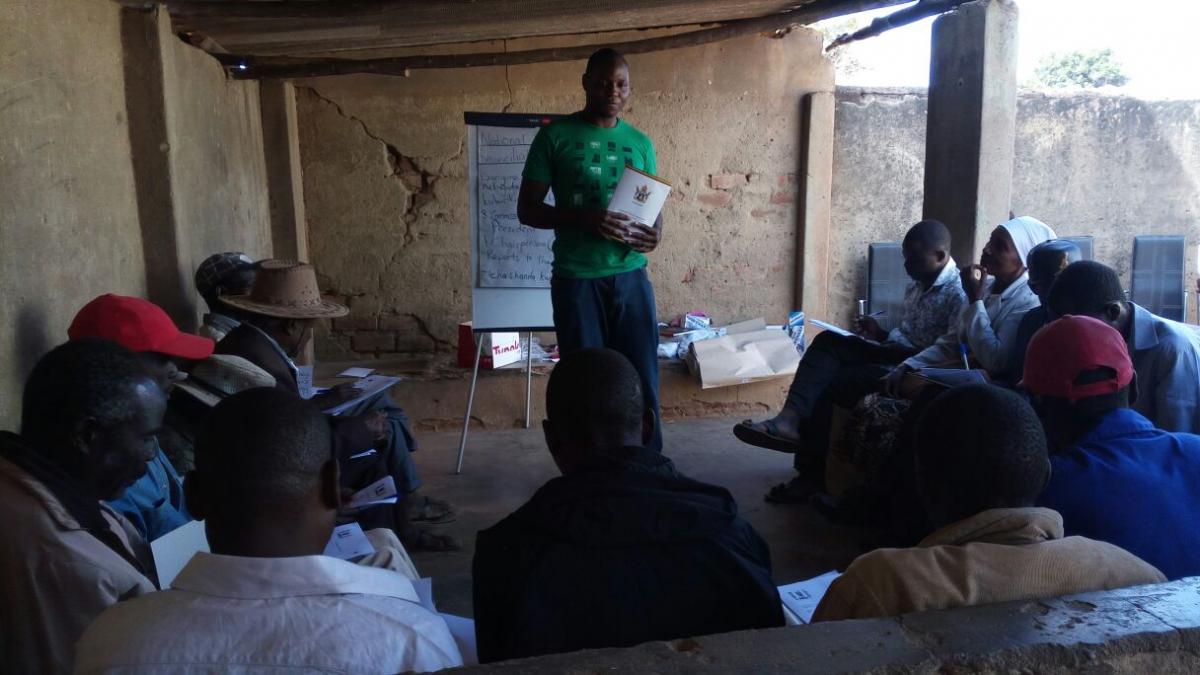Traditional authority is predominant in rural Zimbabwe. It plays a key role in defining rules and regulations that shape citizenship among an estimated 70 per cent of Zimbabwe’s population. However, many of the traditional leaders, like many people in Zimbabwe, have little to no knowledge of the supreme law of the land that was adopted almost three years ago.
To make matters worse, traditional leaders who are supposed to be custodians of culture and role models for their communities are often in the forefront of those who abuse their powers and mandate at the expense of these communities.
To address this anomaly, Zimbabwe Civic Education Trust (ZIMCET) and Heal Zimbabwe Trust (HZT) have been training traditional leaders since September 2014 to increase their awareness of the National Peace and Reconciliation Commission and the Zimbabwe Human Rights Commission. These are two of the five independent commissions contained in the country’s constitutional project titled: “Building a Human Rights Culture in Zimbabwe.” The project funded by the Embassy of the Kingdom of Netherlands (EKN) and Hivos Southern Africa aims to promote interaction between duty bearers and citizens in rural Zimbabwe and build a sustainable human rights culture
ZIMCET and HZT recently conducted the training among twenty-six village heads in Hurungwe, in north central Zimbabwe. For most of the participants, it was their first time to learn about the constitution and the two independent commissions.
“Traditional leadership is an important structure and gatekeeper in communities that must play a positive role in the promotion, respect and realization of human rights,” said Michelle Duma, ZIMCET’s programmes coordinator, adding that informing traditional leaders about the NPRC and HRC will help them fulfil their role to protect and promote human rights in communities.
“The project broadly seeks to build a sustainable human rights culture. If human rights are promoted, protected and respected, and if issues of peace and reconciliation are addressed (and guarantees of non-recurrence ensured), then we will achieve our goal. It is therefore imperative for citizens to know more about the commissions that will directly feed into attaining sustainable human rights.”
During the training, some of the traditional leaders noted that despite their best intentions to uphold the provisions of the NPRC and the HRC, opposing interests often get in the way.
“We appreciate the law and its provisions, but the problem is when the politicians come during election time, we are put under pressure to force people to do things,” said one of the village heads.
Donald Marimbe, HZT Programmes Assistant, encouraged the traditional leaders to be fully aware of the constitution so that they can stand up to politicians.
“In your work as traditional leaders make sure that you do good and that you treat everyone equally and fairly as provided in the Zimbabwean constitution,” he said.
Efforts by ZIMCET and HZT are small, but if scaled up could help increase awareness of the constitution by Zimbabweans, especially in rural areas. This is why Hivos works with activists and organisations that are frontrunners of democratic change and social justice. We do not believe in quick fixes, but choose to support a civil society that contributes to an open democratic society in the long run.




